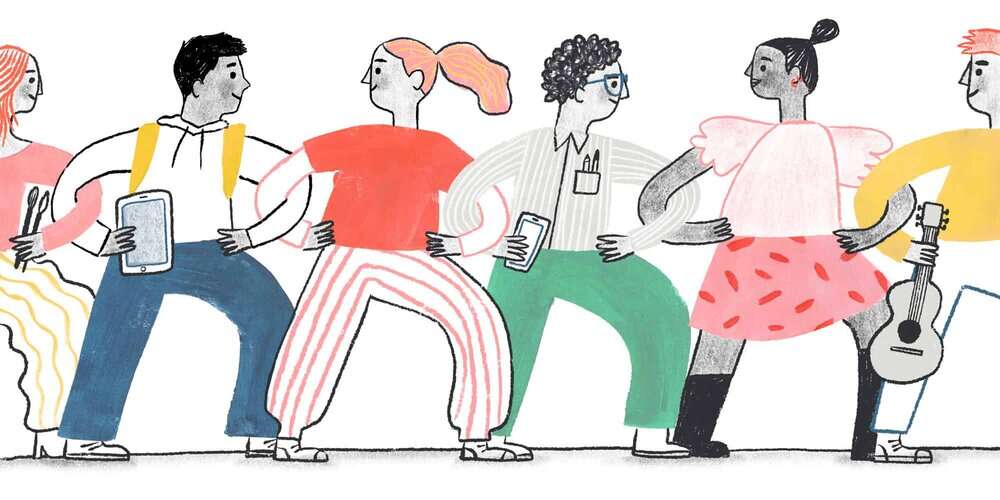If You Suspect a Friend Needs Help

Between school, activities, and just hanging out, you probably spend more time with friends than family. You can tell when a friend is struggling or just doesn’t seem like themselves. Maybe they’re sad and withdrawn, or they don’t want to spend time together anymore. Perhaps they rush off to the bathroom or somewhere private on a regular basis. Maybe a friend is always distracted and worried. You want to help — but how?
Often, what a friend needs most is just someone to talk to. Not someone to tell them what to do — you’re not a parent or a mental health provider — but someone who will listen without judgment and offer support. A friend who is struggling may not know how to tell you what’s bothering them.
Ways to start a conversation if you're worried about a friend (from SAMHSA.gov)
“I’ve been worried about you. I’ve noticed you’ve (been drinking a lot, been using drugs, seemed down lately, etc.). Can we talk about what’s going on?”
“I care about you and want to make sure you’re okay. If you ever think about harming yourself, you know you can come to me, right?”
“If you don’t feel comfortable talking to me, is there someone else you’d prefer to talk to, like your parents, siblings or someone else who cares about you?”
“Do you know someone who’s had an experience like yours? If you don’t, I can help you find someone to talk to.”
“I want to be here for you. Do you want to talk about it?”
Opens in new tab Download the rest of this list from SAMHSA.govPeople tend to react more positively when you begin a conversation with an “I” statement (“I feel” or “I’m concerned”) rather than being accusatory (“You never want to hang out anymore” or “You seem so out of it”).
Another good source for conversation starters and information about how to help a friend is the website Opens in a new tabSeize the Awkward.
What if a friend doesn’t want to talk?
Your friend may not open up to you right away. Be patient. It can be helpful for them just to know that you’re there. Say that they can talk to you when they’re ready. Then gently check in now and then to let them know you care.
What if a friend needs support?
If a friend does open up to you, here are steps you can take to support them:
-
Listen
Rather than interrupt with questions or advice, let them tell you as much as they’d like, and offer validating statements like, “That sounds really hard” or “I’m so sorry you’re going through that.” Reflect back to them in your own words what you think they are trying to tell you. This will let them know you are hearing them and give them a chance to clarify any misunderstanding.
-
Ask
How can I help you?
-
Reassure
Tell them that they are not alone and that what they’ve shared with you will not change how you feel about them. Say things like, “I’m here with you” or “Let’s tackle this together.” Avoid saying things like, “It’s not that big a deal” or “You’re fine.”
-
Keep confidences
Don’t gossip or share personal information with other friends if they ask you not to do that. You want to respect your friends’ privacy, even if another friend asks or is curious about what’s going on.
-
Be a friend
Continue to include them in plans, even if they don’t seem up for hanging out right now. Even a quick message can mean a lot. Let them know that there isn’t a timeframe for them to feel better and that you aren’t going to disappear just because they’re going through a tough time.

Sometimes a friend needs additional support during a difficult period. If you or they are concerned that they have a mental health condition, or if they already have one and they seem to be having an unusually hard time, you can:
- offer to talk to a trusted adult together or to help research mental health support resources
- learn more about the friend’s mental health condition. Offer to go to a support group with them.
— submitted by a Young Person
You do not have to go it alone. Keeping a friend’s confidence among peers is different than keeping secrets from a parent or another trusted adult if you feel uncomfortable or scared about your friend’s health or safety. Talk to your parent, teacher, coach, faith leader, or other trusted adult. This isn’t breaking someone’s confidence or gossiping — it’s getting guidance as you support a friend. (See Where can you get help?). If you get overwhelmed and need to take a step back, that’s okay. It’s important to remember to take care of yourself, too. (See Self-Care).
For more on friendships, see Social ConnectionsFor Young People

Reasons Someone Might Need Help
Understand common signs that indicate when professional mental health support could be beneficial.
Read more about Reasons Someone Might Need Help
Where Can You Get Help?
Discover trusted resources and people ready to support your mental health journey.
Read more about Where Can You Get Help?
What to Do in a Mental Health Crisis
Find essential steps and resources for responding effectively when someone needs urgent help.
Read more about What to Do in a Mental Health Crisis






